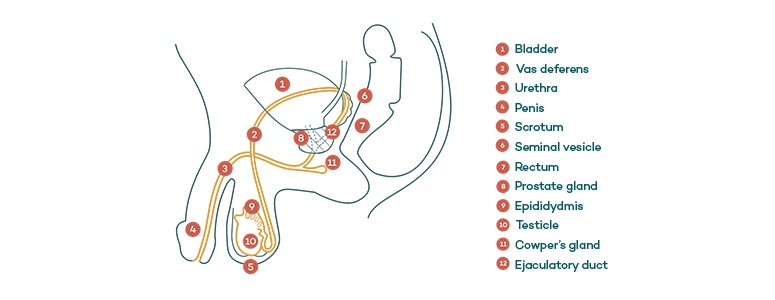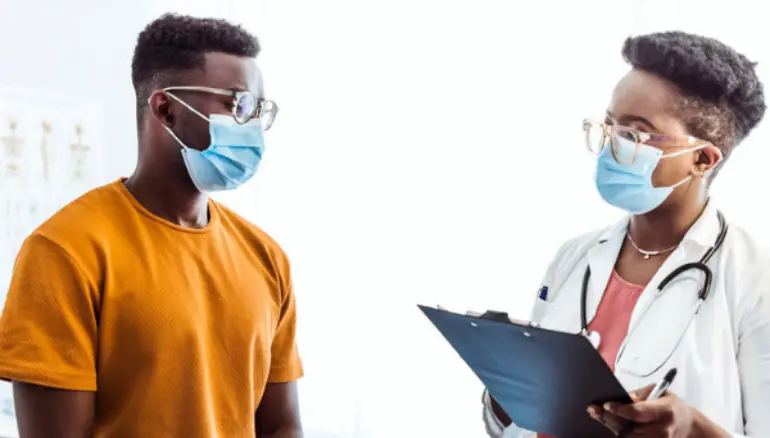Whether there’s a lump or bump you’re worried about or you’re after a routine check-up to make sure everything’s in working order — if you haven’t had a genital examination before it’s normal to feel a bit nervous. Knowing what to expect during a male genital examination can help put your mind at ease.
So, what is a male genital examination?
A physical examination of your genital region — which includes your penis, scrotum and testes (testicles) — is vital for the detection of health conditions such as testicular cancer, Klinefelter syndrome, and penile and hormonal abnormalities. It’s also used for the diagnosis of hernia, urinary problems, skin conditions, and infections.
What happens during a genital examination?
A genital examination will be done by your doctor. You’ll need to remove clothing covering the area. The examination may be carried out with you standing or lying down with a sheet or towel covering you. At any point you can ask questions or express any discomfort you’re feeling.
If it’s suspected that you might have a sexually transmitted infection, your doctor will swab any skin lesion on the genital region or urethral discharge. If you’re having issues with a tight foreskin, the doctor will examine the lack of mobility of your foreskin.
Overall, the process shouldn’t take more than a few minutes.
Does a genital examination involve a prostate examination?
Worried about a finger up the bum? A rectal exam is not part of a genital exam. They’re not routine and they’re not even recommended for prostate cancer screening. A rectal exam should only be performed if symptoms suggest it’s needed.

Do I need to be erect for a genital examination?
No, you don’t need to be erect for a genital examination. If you’re experiencing an issue that occurs during an erection, like bending, it can help to take a photo at home to show your doctor during your appointment.
Your genitals are incredibly sensitive, so it isn’t unusual for an erection to occur while you’re being physically examined. Don’t let it worry you, your doctor has seen it all before.
Can I check myself?
You can and should check yourself — getting familiar with the look and feel of your genitals can help you recognise when something has changed. However, it’s also important to get checked by a doctor as they’re trained to spot signs of problems you’re not aware of.
A testicular self-examination (TSE) is a quick and simple process. You might find it easier after a warm bath or shower when the skin of your scrotum is relaxed.
Standing in front of a mirror, start by checking for any swelling on the skin of your scrotum. Hold your scrotum in your hands and feel the size and weight of each testicle. Don’t worry if one testicle is a little bigger or hangs lower than the other, that’s normal.
Feel each testis, one at a time, by rolling it between your thumb and finger, checking for any lumps or swelling. The testes should feel firm, and the surface should feel smooth. You should be able to feel your epididymis, a soft tube toward the back of each testicle that carries sperm to the ejaculatory ducts.
Check for any swelling in this area. You shouldn’t feel any pain when checking your testicles.
How often should I have a genital examination?
It’s a good idea to see your GP every 12 months, even if you are feeling well. A genital exam will only be performed if you have symptoms or concerns that require it. A genital exam is not usually part of a check-up with your GP.















